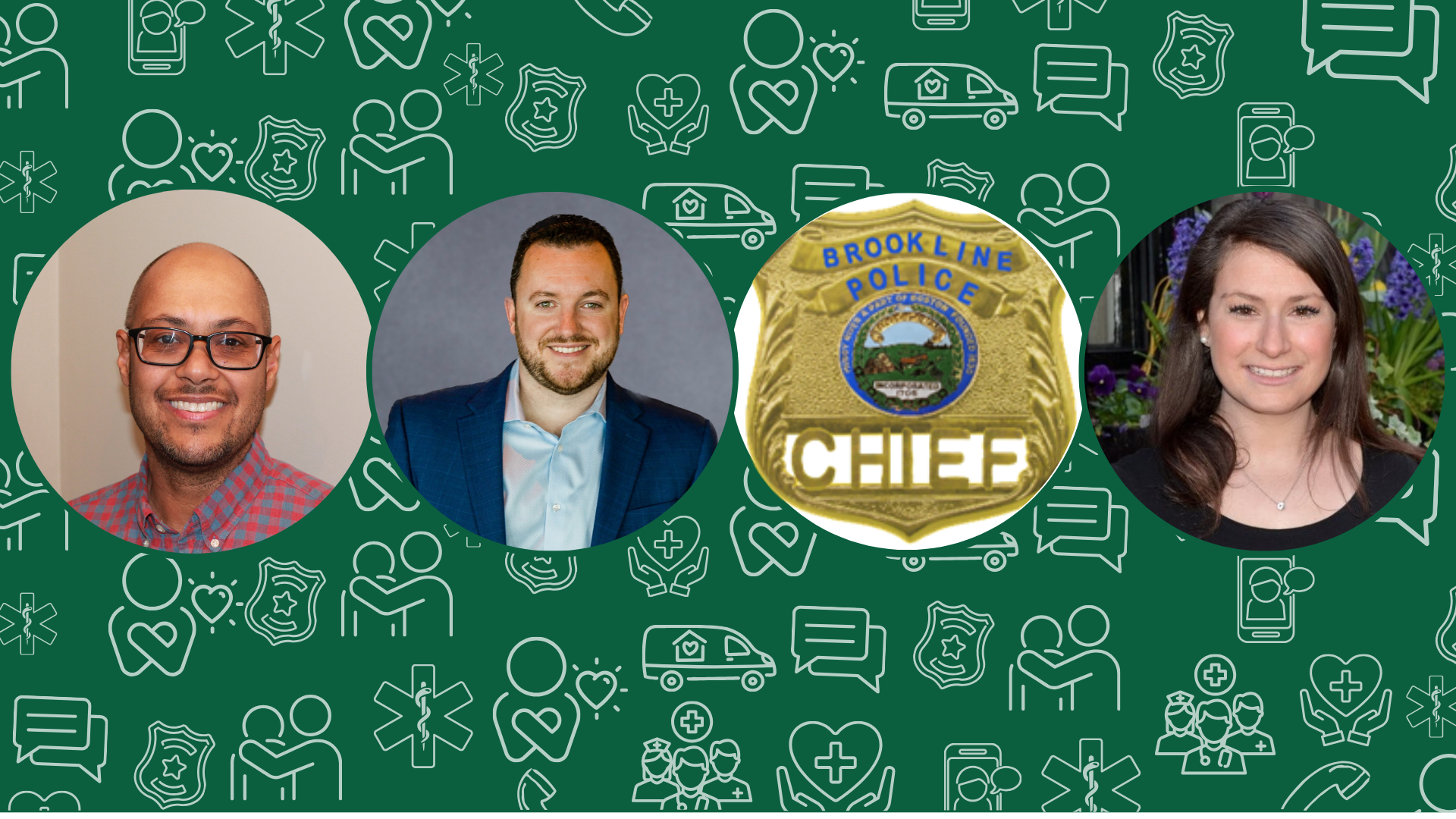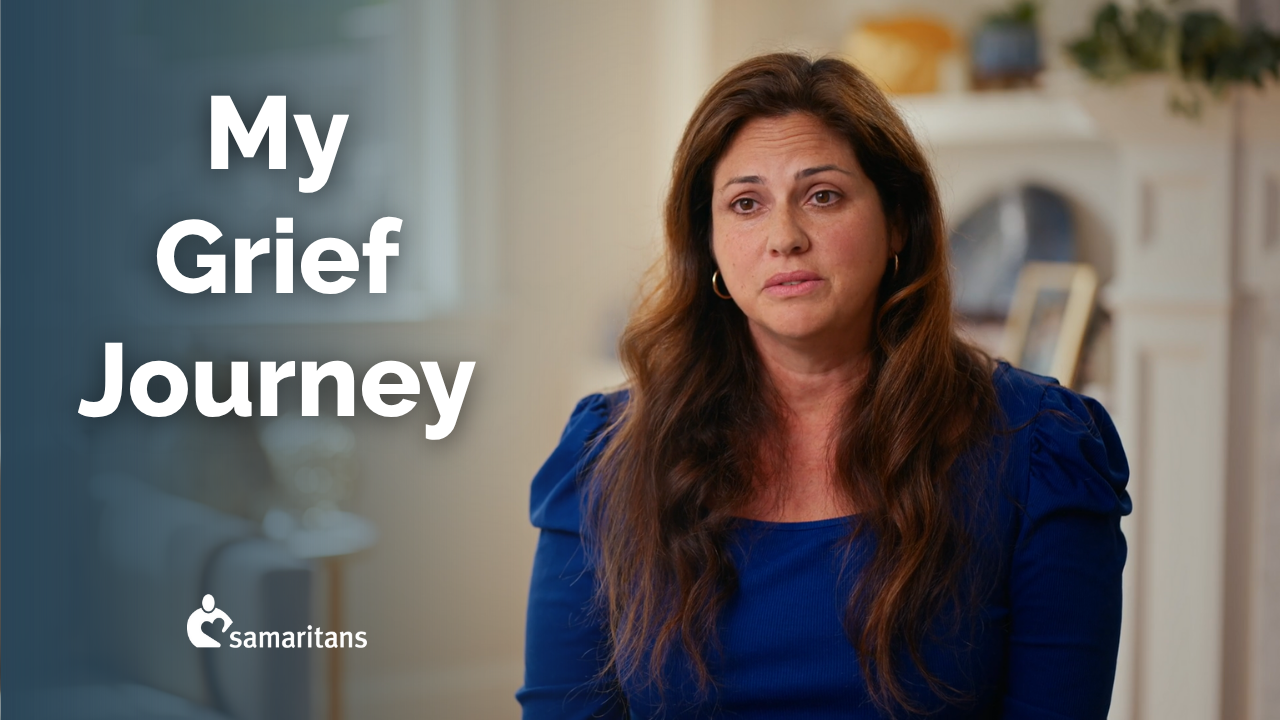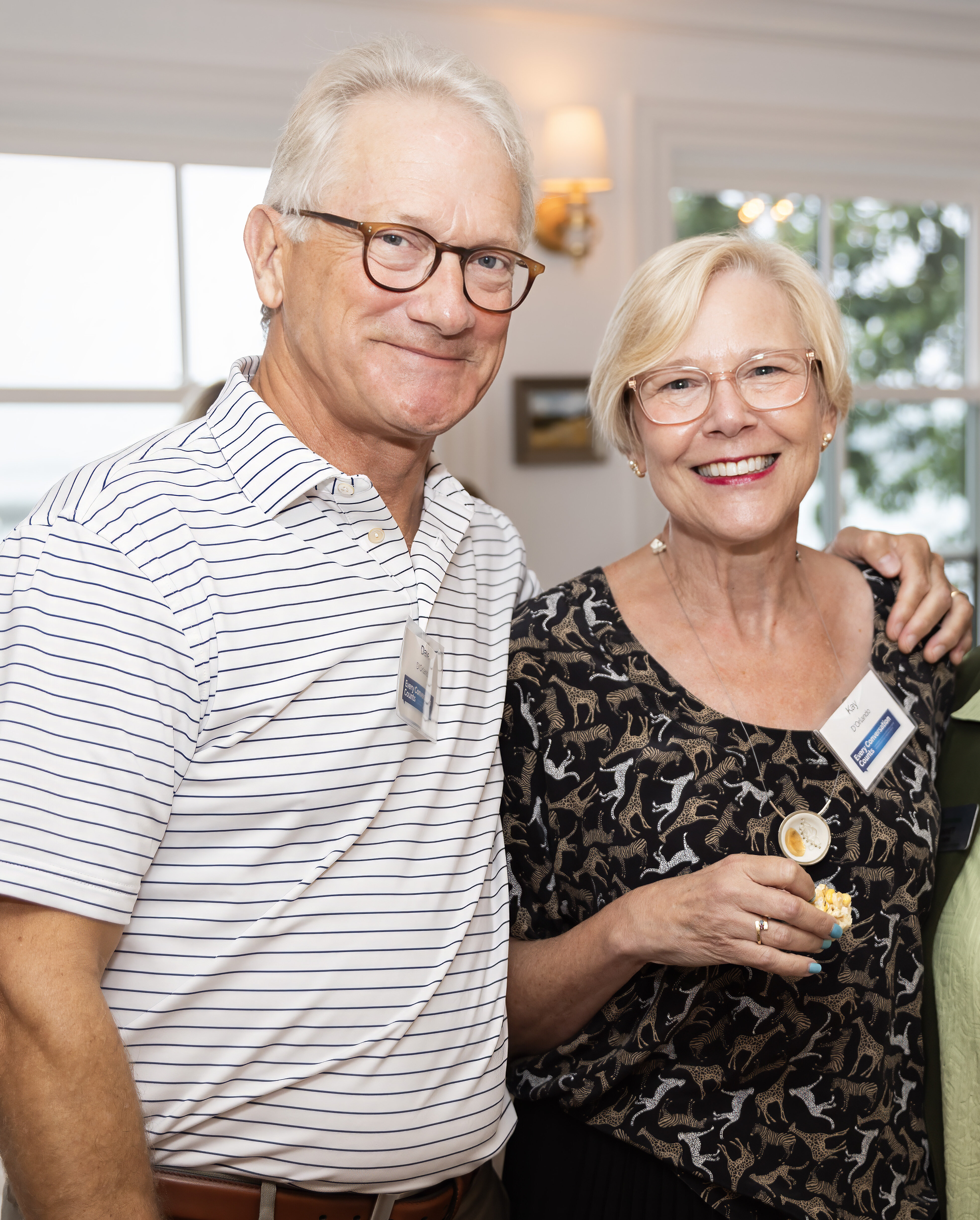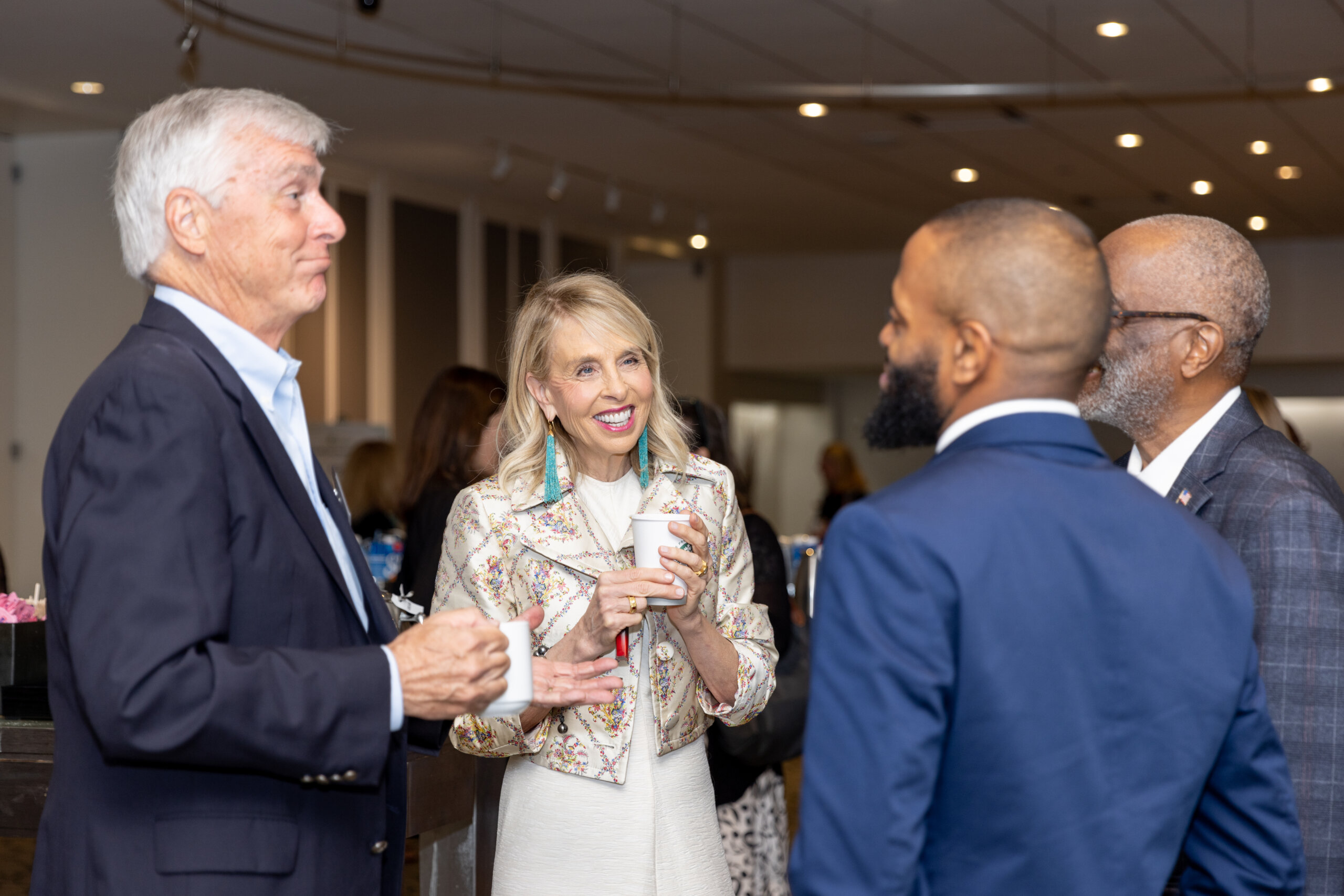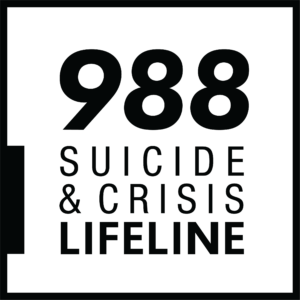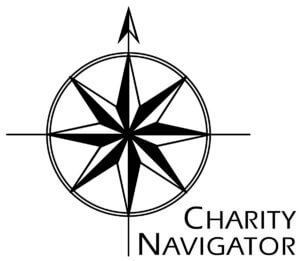Losing a loved one to suicide is an incredibly difficult experience that can leave survivors feeling isolated and misunderstood. For members of the LGBTQ+ community, this grief can be compounded by unique challenges and concerns. That’s why Samaritans is launching a new SafePlace suicide grief support group, beginning September 10, 2024, specifically for LGBTQ+ individuals who have lost someone to suicide, or those who have lost someone who was a member of the LGBTQ+ community.
Like all SafePlace meetings, this monthly peer support group is offered to participants 18+, free of charge, at any time after their loss. It offers a chance to explore feelings often not understood by others, share helpful resources, and give and get support through the long process of grieving.
Two of the facilitators for this groundbreaking support group are Alex Magyar and Rhonda Pilla, who are suicide loss survivors themselves. Alex first attended SafePlace in January 2018, after the death of his brother, Adam. He wants suicide loss survivors to know that it’s okay to not be okay, and you don’t have to do this alone.
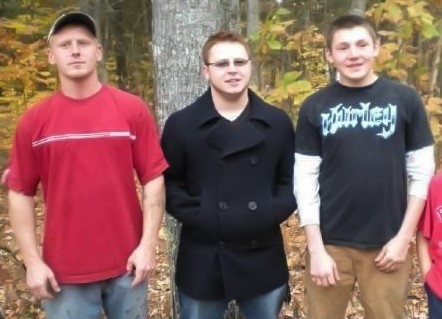
“After losing somebody to suicide, it feels like your world is in chaos. Joining SafePlace, for me at least, helped provide some clarity in a very uncertain time. You often think you’re going crazy. ‘Why am I feeling this way? Is this normal?’”
Going to that first meeting was one of the hardest things Alex ever did, because he had to recognize that his grief was real. However, through attending SafePlace, he felt less alone, and validated that what he was going through was normal for someone who has experienced a traumatic loss.
A Double Stigma
Rhonda lost her wife, Pam, at a time when being LGBTQ+ was not as accepted as it is today. When she first got the news, she was traveling, and knew she had to get home as quickly as possible. She was deathly afraid that being transparent about her relationship with Pam might prevent others from taking her grief and urgency seriously.
“I remember telling people I lost my husband…Until this day, I still tell Pam, I’m so sorry for that. I feel like I betrayed her, but I wanted to get home as quickly as I could.”
Societal stigma towards suicide can be a big barrier for anyone who has lost someone or struggled with suicidality themselves. Prejudice can create a “double stigma” that may make it more difficult for LGBTQ+ individuals to find safe spaces to talk about their grief. When support groups aren’t explicitly LGBTQ+ friendly, it can be difficult to gauge whether they will truly be accepting.
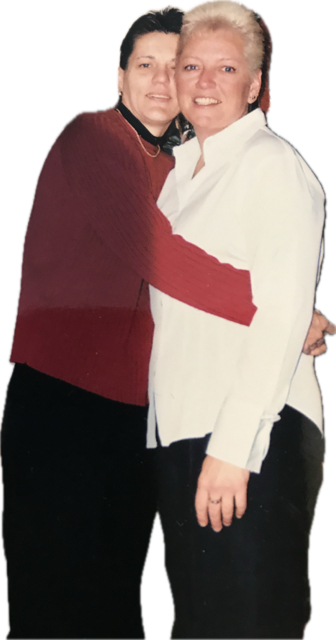
“When I first said the words ‘my wife,’ I kind of was just waiting for the ball to drop,” Rhonda said.
She initially felt reluctant to speak openly in SafePlace. However, she recognized that she had to be honest to get the support she needed. Alex was one of the facilitators for this group and hearing him speak openly about his husband helped Rhonda feel more comfortable. Connecting with others who were farther out from their loss, and seeing how they moved through their grief, also gave her hope for the future.
Fostering an Inclusive Environment
All SafePlace meetings are inclusive, welcoming groups of caring individuals. However, this new SafePlace group for the LGBTQ+ community takes extra steps to foster an environment where participants can bring their true selves to the meeting. Loss survivors, whether they identify as LGBTQ+ themselves, or have lost someone who identified as LGBTQ+, can openly discuss who they are, who they lost, and what that person meant to them.
Let’s take the step together to start healing the grief. It’s a scary step, but you don’t have to do it alone. We can do it together, and that’s what SafePlace is for.
This group is specialized to support LGBTQ+ individuals:
- Meetings are led by facilitators who identify as LGBTQ+ loss survivors.
- Meetings offer the opportunity for participants to talk about how their LGBTQ+ identity shapes their grief and relationships after their loss.
- Participants will be addressed using the name, pronouns, and language that resonates with them, without making assumptions based on appearance.
“It’s really just trying to ask the right questions and really be as inclusive as possible to make sure people feel as comfortable as possible,” said Alex.
Participants can expect a supportive atmosphere where they can openly discuss their identity, their loss, and how these intersect in their grief journey. The group aims to create a space where individuals feel heard and understood.
“Let’s take the step together to start healing the grief. It’s a scary step, but you don’t have to do it alone. We can do it together, and that’s what SafePlace is for,” said Alex.
Virtual SafePlace meetings for the LGBTQ+ community will take place on the second Tuesday of each month, 6:30-8:00pm ET, beginning September 10. Register now.
Rhonda Pilla will be the keynote speaker at the Community Gathering on Suicide Prevention: Samaritans Annual Meeting on October 24, 2024. Connect with our community, celebrate our 50th anniversary, and learn more about our new SafePlace support group for the LGBTQ+ community.
